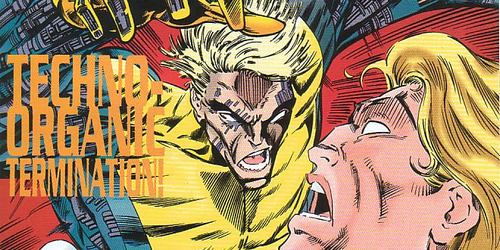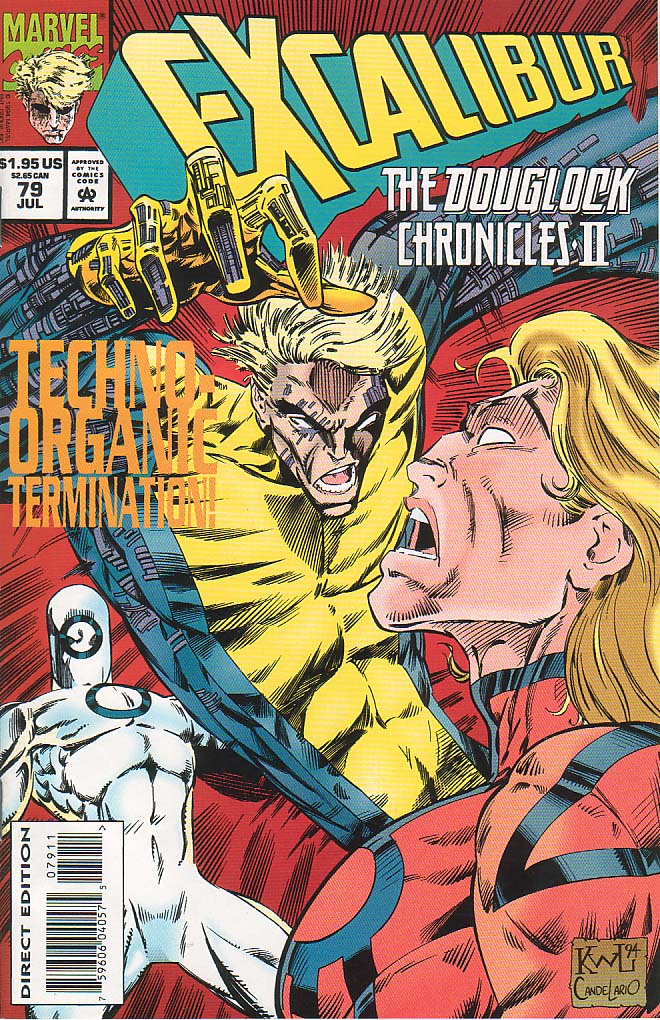Excalibur #79
“Twisted Logic”
Writers: Scott Lobdell & Chris Cooper
Pencils: Ken Lashley
Inks: Harry Candelario & Randy Elliott
Colours: Chris Matthys
Letters: Dave Sharpe
Editors: Bob Harras & Suzanne Gaffney
Original publication date: July 1994
What twisted logic brought us here, to Excalibur #79, “Twisted Logic,” in which the main characters aren’t member of Excalibur and child-size flatscans are more open-minded than a queer-coded Jewish mutant who’s sometimes a robot but hates them, apparently? We try to puzzle it out with the help of our returning guest, comics scholar Matt Linton! Plus—cultural contexts of the Legacy Virus and cyberpunk and how this comic might actually be about the humans of 1994 being really freaked out about Y2K.
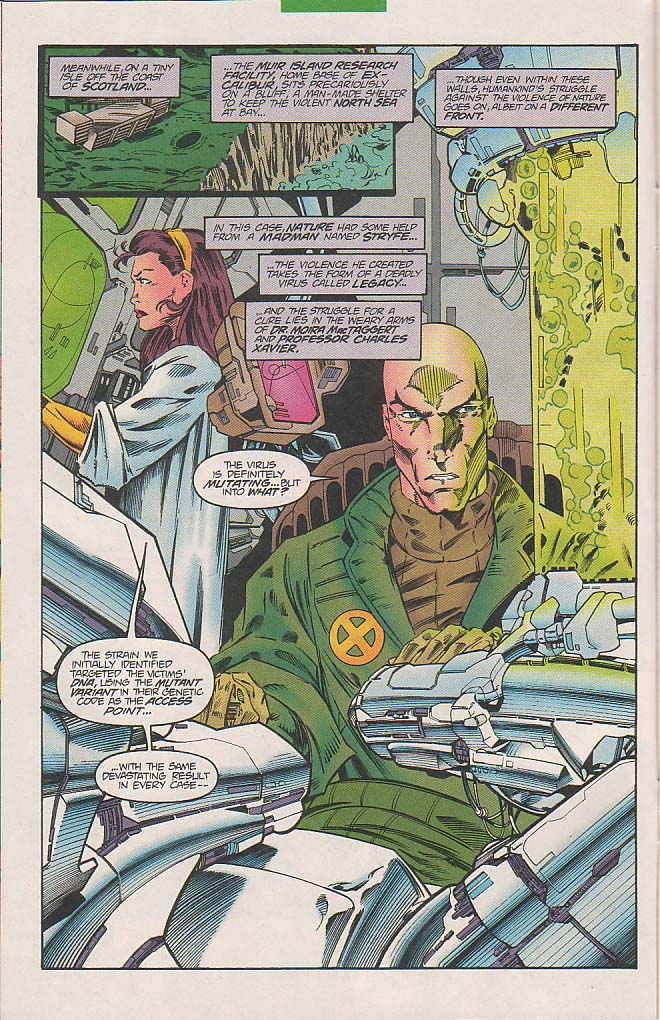
On tonal shifts:
“There’s a sense in this era of them not understanding what Excalibur is supposed to be. It’s overly serious and bogged down in every 90s X-Men plot.” -Matt

On characterization:
“Lobdell clearly doesn’t feel the same way as Claremont and Davis did about the characters, so they just become stand-ins for whatever the story needs.” -Matt
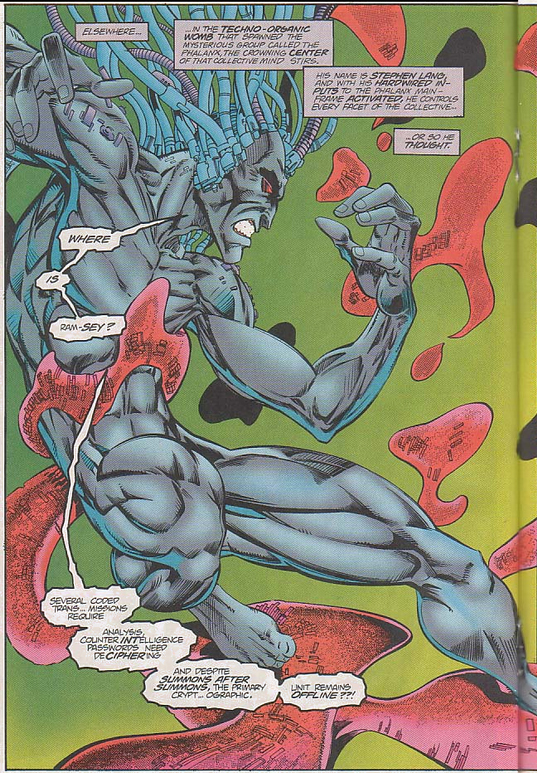
On cyberbodies:
“Superheroes are differentiated from earlier pulp heroes in part through their embrace of technology, and yet, they can’t be fully subsumed by technology, because that would risk the male-coded fantasy of individualism that animates so much of the genre.” -Anna
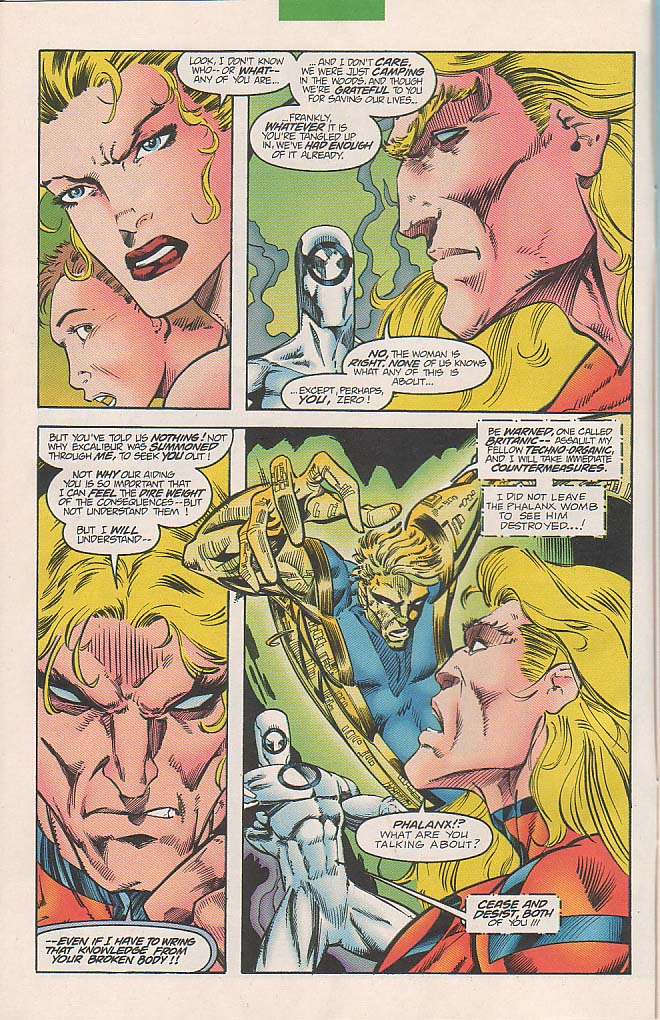
On punchable bodies:
“If you’re a being composed of superior technology, why would you have a body that can be punched? Besides the fact this is superhero comics, and they need to punch something.” -Matt

On techno-transformations:
“With the rise of the internet, you had computers becoming integrated with people’s daily lives in new ways… technology changed the world in a way that hadn’t happened since the atomic age. And that scared people.” -Mav
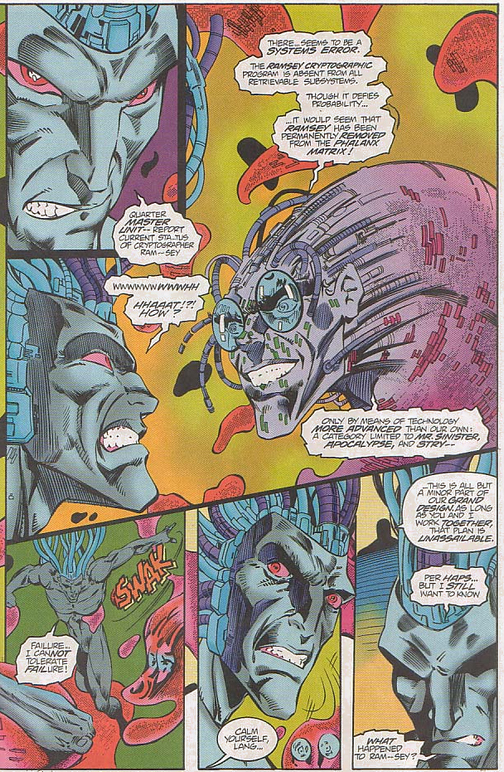
On cyberpunk (or lack thereof):
“I don’t see the ‘punk’ element of cyberpunk manifest in the Phalanx at all. I think they’re quite the opposite. It feels behind the times and like it doesn’t really understand what cyberpunk is.” -Andrew
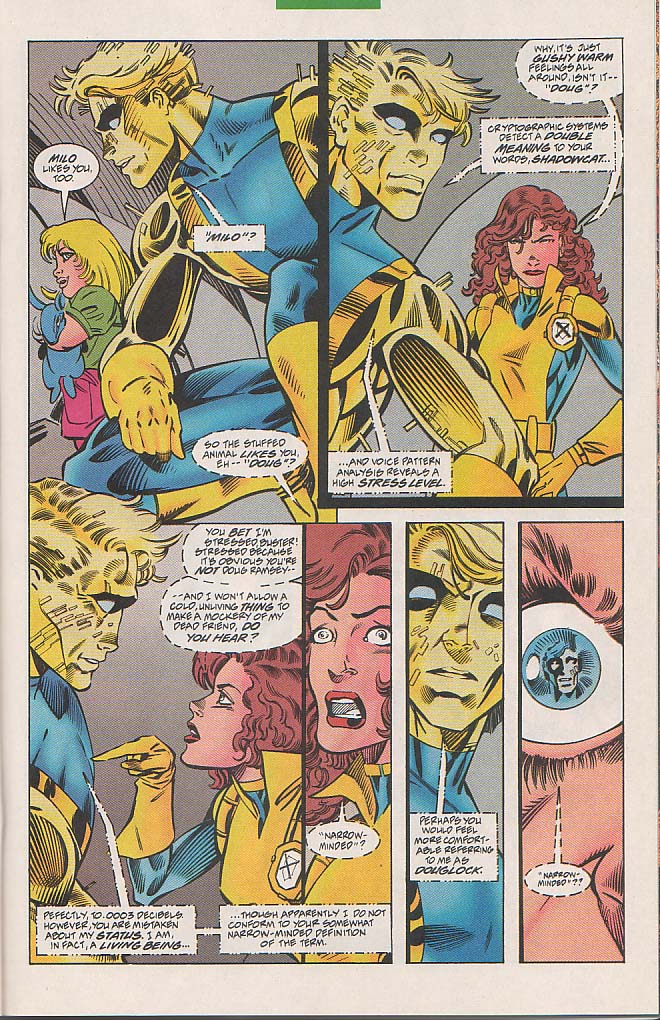
On robo-racism:
“Kitty does a white fragility thing here, where apparently, the most racist thing someone can do is accuse someone else of being racist.” -Anna

Want more Matt Linton?
For more on what Matt Linton gets up to, you can find him on Twitter (@ABoyCalledMonk) and at The Kino Club 313 Blog.
And be sure to check out his essay “Blood and Fire: Monstrous Women in Carrie and the ‘Dark Phoenix Saga’” appearing in Gender and Contemporary Horror in Comics, Games and Transmedia.
And as usual:
You can find Anna on Twitter (@peppard_anna) and at Sequential Scholars (@seqscholars).
You can find Andrew on Twitter (@ClaremontRun) and at Sequential Scholars.
You can find Mav on Twitter (@chrismaverick) and on his podcast, VoxPopcast (@VoxPopcast).
Enjoy!
-GGW Team

